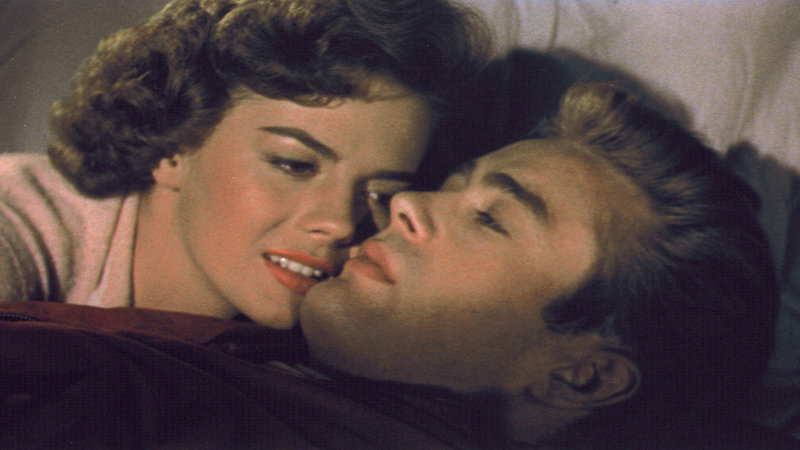“Nicholas Ray’s 1955 troubled-teen drama refuses to age any more than its martyred lead tearaway James Dean’s star ever dimmed… It’s a bleak and tumultuous film, but searing.” — Time Out

Screened as part of NZIFF 2005
Rebel Without a Cause 1955
Troubled adolescents Jim (James Dean), Judy (Natalie Wood) and Plato (Sal Mineo) meet in police custody. While visiting a planetarium, Jim befriends Plato but is taunted into fighting with Judy’s boyfriend, Buzz. They agree to meet later that evening for a ‘chickie run’ – a test in which each will drive a stolen car to the cliff edge and leap clear at the last possible moment. When the cars head for the brink, Buzz’s sleeve catches, causing him to go over. Later, seeking sanctuary from their problems, Jim, Judy and Plato explore a large deserted mansion. Jim and Judy declare their love, but their peace is transitory. Buzz’s gang follow them there and attempt to beat up Plato who manages to wound one of them. The police arrive and pursue Plato to the planetarium.
This dramatic storyline involves such narrative compression that its interpretation ought to be straightforward. However, in the 50 years since the film’s first screenings, its reception has been sensationalised by James Dean’s tragic accidental death three days before its release. Apart from giving the young star immediate cult status, this occurrence added poignancy to the dialogue in which Dean-as-Jim expresses pessimism about his future. Furthermore, salacious details such as 43-year-old Ray’s affair during the production with an enthusiastic 16-year-old Natalie Wood, and the suspicious deaths in subsequent years of Wood and Mineo have also served to obscure the movie’s own very real merits.
Beginning its life as a problem picture in the Warner Bros tradition, Rebel quickly changed under Ray’s influence into his typical story of alienated young romantics. Despite its title Rebel Without a Cause is a film with a quite reactionary conclusion: at the end, the ways of the old become the ways of the young. Certainly teenagers are foregrounded, but the film finally delivers the children into adults’ hands and integrates them into a typically 1950s social consensus. They are not really rebellious, just terrified of loneliness. In a sense, they are street-corner existentialists, full of atomic-age angst. Jim even rehabilitates Judy, redirecting her Oedipal lust for her father to a more socially acceptable focus: himself.
The film’s rebellious and radical reputation then may not really be deserved. In the final analysis does that really matter? Dean’s presence and style were read as disruptive and transgressive by teenagers in the 1950s and his persona of anguished, doomed youth had an influence beyond the encoded moral lessons of the film. — Brian McDonnell